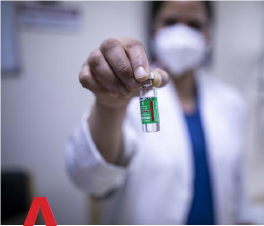A year after the Coronavirus pandemic changed the world, scientists around the world who have been working round the clock discovered vaccines that would make man immune to the deadly virus. The government of several countries, Non-Governmental Organizations (NGOs), and private companies have spent billions of dollars in the research, manufacture, and distribution of vaccines. Before these vaccines could be produced, different hurdles were faced including the discovery of new strains of the virus, manufacturing problems, political restraints, and doubts about the effects of these vaccines on the body in the future.
The research done by so many governments and privately-owned organizations has led to more than 70 vaccines being recognized by the World Health Organization, many of which are still undergoing rigorous testing. Testing of vaccines typically takes years, but the process has been sped up due to the severity of the virus. Of these vaccines recognized by the World Health Organization, close to a dozen are currently being distributed around the world including Pfizer and BioNTech, Oxford/AstraZeneca, Moderna, and Sinopharm. Hundreds of millions of people have so far received these vaccines and still counting. With the need for people to be vaccinated came the problem of the distribution of these vaccines.

While some countries like the United Arab Emirates and Israel have made meaningful progress in vaccinating their citizens, a whole lot of other countries have not been able to even start the process of vaccination. Others have only been able to immunize only a small fraction of their citizens, and Nigeria is one of those countries. Nigeria’s Covid-19 Vaccination Situation Nigeria is the most populated country on the African continent but surprisingly, it does not have as many Covid-19 cases as countries like South Africa, Morocco, and Tunisia.
However, there is still a high possibility that more of the Nigerian population will become infected without the proper vaccination. In the early days of March 2021, Nigeria received 3.92 million of the Covid-19 vaccines produced by the University of Oxford and AstraZeneca.

This was just part of the 16 million doses allocated to Nigeria by the UN global initiative COVID-19 Vaccines Global Access (COVAX). After these vaccines were received, the Nigerian government announced that the vaccination would take place in four stages; the first stage would see the frontline health workers and strategic leadership receive the first doses of the vaccine, while individuals aged 50 years and above would partake in the second stage.
In the third stage, individuals aged 18 to 49 years, with relevant medical conditions would be given the vaccine and the fourth stage would involve individuals age 18 to 49 years without relevant medical conditions. The government had a plan to vaccinate 40% of the population by the end of 2021, and 70% by the end of 2022, but they had only succeeded in vaccinating under 1% of the population by the end of April 2021. At this rate, they certainly will not meet their target. Solutions to Nigeria’s Covid-19 Vaccination Situation. The Nigerian government faces a huge task in vaccinating over 200 million Nigerian citizens and stop the scourge of Covid-19 in the country.
Though announcements have been made concerning the distribution of vaccines, there is no feasible plan to ensure the citizens are vaccinated. Nigerians are expected to visit the National Primary Health Care Development Agency’s official website (www.nphcda.gov.ng), to apply for vaccination but a large number of the citizens do not have access to the internet. The vaccination situation in Nigeria would have been better if some steps were taken before the arrival of these vaccines. A good step in the right direction would have been to create a database for Nigerian citizens as advanced countries do. This database would ensure the government gathers information about all the citizens, including their health records.

With this database of citizens, it will be easier to know the total number of citizens, the number of vaccinated citizens, and those that are yet to receive vaccines. When compared to countries that have made breakthroughs in vaccination, Nigeria has a larger population and this has proven to be an obstacle to vaccination. With the population being a problem, citizens could be asked to register for a state or local government health scheme which would make collation of data at the state and local government levels easier.
The government would also increase the faith its citizens have in them by formally mapping out and declare their plans to distribute these vaccines to the masses. Another area the Nigerian government has to look into is the production of vaccines locally, instead of depending on the vaccines imported from other countries. Production of vaccines, for diseases suffered by humans, has been close to zero for so many years in Nigeria; the last time any human vaccine was produced in the Federal Vaccine Production Laboratory was in 1991. It is a sign of how little the government has done in developing the health sector. Funding research institutes and laboratories in Nigeria would go a long way in not only the production of vaccines but also the development of new vaccines.
Although there are Nigerian experts in the area of infectious diseases working on locally produced vaccines, these individuals are funded by private organizations who in turn would expect to make a profit once these vaccines have been produced. In an attempt to make a profit, these private organizations might sell the vaccines at prices most of the population might not be able to afford. Instead of waiting for results from these privately-sponsored individuals, the government should collaborate with them and provide every necessary support they might need to ensure vaccines are produced locally.


